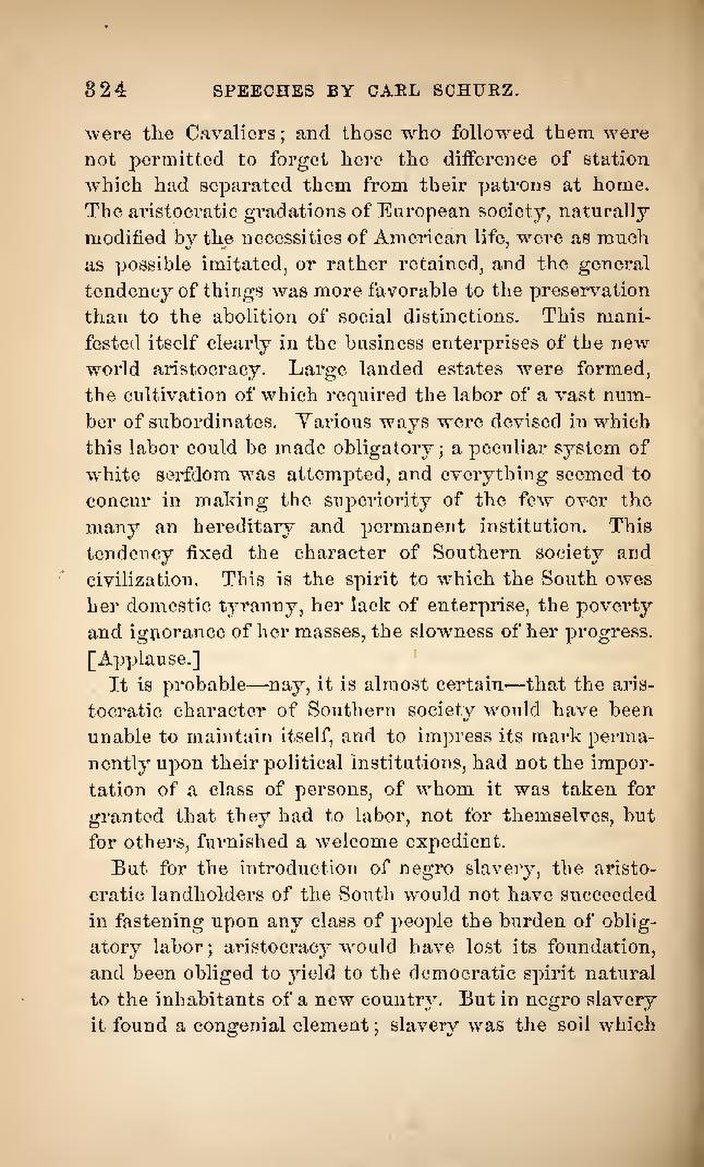were the Cavaliers; and those who followed them were not permitted to forget here the difference of station which had separated them from their patrons at home. The aristocratic gradations of European society, naturally modified by the necessities of American life, were as much as possible imitated, or rather retained, and the general tendency of things was more favorable to the preservation than to the abolition of social distinctions. This manifested itself clearly in the business enterprises of the new world aristocracy. Large landed estates were formed, the cultivation of which required the labor of a vast number of subordinates. Various ways were devised in which this labor could be made obligatory; a peculiar system of white serfdom was attempted, and everything seemed to concur in making the superiority of the few over the many an hereditary and permanent institution. This tendency fixed the character of Southern society and civilization. This is the spirit to which the South owes her domestic tyranny, her lack of enterprise, the poverty and ignorance of her masses, the slowness of her progress. [Applause.]
It is probable—nay, it is almost certain—that the aristocratic character of Southern society would have been unable to maintain itself, and to impress its mark permanently upon their political institutions, had not the importation of a class of persons, of whom it was taken for granted that they had to labor, not for themselves, but for others, furnished a welcome expedient.
But for the introduction of negro slavery, the aristocratic landholders of the South would not have succeeded in fastening upon any class of people the burden of obligatory labor; aristocracy would have lost its foundation, and been obliged to yield to the democratic spirit natural to the inhabitants of a new country. But in negro slavery it found a congenial element; slavery was the soil which
